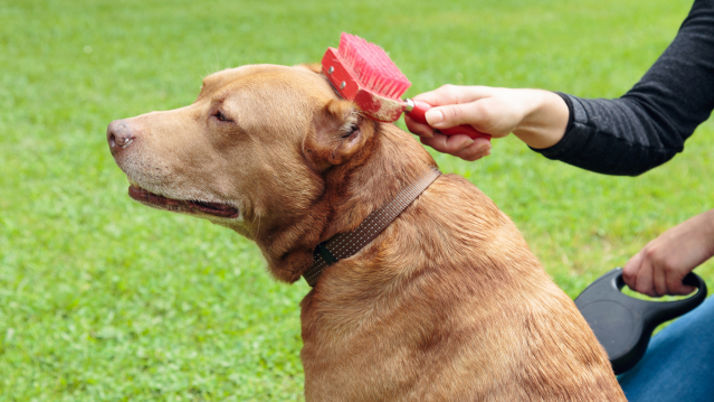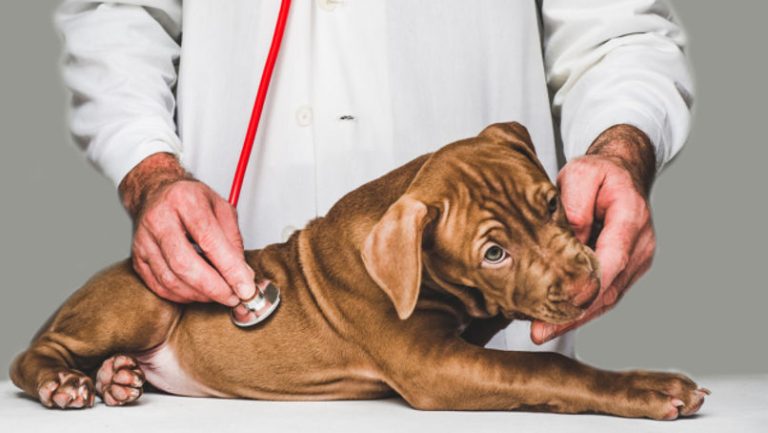If you own a Pitbull, you might have come across skin bumps as a common issue. These bumps can arise from various causes like allergies, parasites, and genetic conditions.
In this blog, we will provide you with comprehensive information about Pitbull skin bumps. We’ll discuss why they are more prone to skin conditions and how to identify physical indications. Furthermore, we will delve into the causes of these bumps and their potential impact on your pet’s health.
To assist you further, we have compiled effective treatments, preventive measures, and natural remedies to ensure your furry friend’s skin stays healthy and happy. If you’re curious about proper care for your Pitbull’s skin, continue reading!
Understanding Pitbull Skin Bumps
Skin bumps are commonly found in Pitbulls. But if left untreated, these bumps can cause itching, inflammation, and even infections as they spread.
Papules, pustules, and nodules are among the various types of skin bumps that occur in Pitbulls. It is crucial to promptly address these bumps to avoid further complications.
Why Pitbulls are Prone to Skin Conditions
Pitbulls are prone to skin issues due to a combination of genetic factors and environmental triggers. Their short hair and sensitive skin increase their vulnerability to dermatological problems.
Allergies can easily be triggered by environmental elements, leading to itching and irritation in Pitbulls. Moreover, Pitbulls may have highly reactive immune systems that worsen the impact of allergens and parasites, exacerbating preexisting skin conditions.
Common Physical Indications of Skin Bumps
Pitbulls can develop various skin bumps that may cause physical discomfort, irritation, and potential infection. It is crucial to be able to recognize different types of these bumps, including pimples, cysts, and tumors, as they can lead to itching, hair loss, and other related conditions.
Unveiling the Causes of Pitbull Skin Bumps
One common cause of skin bumps on pitbulls is a weakened immune system, which makes them more prone to developing such bumps.
Additionally, some of these bumps may indicate more serious health conditions like skin cancer or autoimmune disorders. It’s important to note that regular grooming and preventive measures against fleas and ticks can help reduce the occurrence of skin bumps in Pitbulls.
The Role of Environmental Allergens
Pitbulls can develop skin bumps due to allergies from environmental factors like pollen. Additionally, sensitivity to certain plants or grasses may also lead to the formation of these bumps in pitbulls.
Allergic reactions caused by exposure to detergents or chemicals can also result in skin bumps. Conducting allergy testing can help identify the specific environmental allergens causing these issues.
Impact of Food Sensitivities
Some pitbulls may develop skin bumps due to food allergies or sensitivities.
These bothersome bumps are triggered by specific ingredients in their diet, causing an allergic reaction. To address this problem, switching to a hypoallergenic or limited ingredient diet can be beneficial.
It is crucial to closely collaborate with a veterinarian to pinpoint and eliminate potential allergens from the pitbull’s diet. By introducing new foods gradually and carefully monitoring for any negative responses, it becomes possible to identify food sensitivities in pitbulls.
The Threat of Parasites and Mange
Fleas and ticks have the potential to cause skin bumps in pitbulls through their bites and saliva. Therefore, it is crucial to implement regular flea and tick prevention measures to prevent the formation of these skin bumps.
Another factor that can contribute to the development of skin bumps in pitbulls is mange, a skin disease caused by mites. Mange often leads to severe itching and subsequent formation of skin bumps.
To minimize the risk of mite infestation, timely treatment of mange along with thorough cleaning of the pitbull’s environment is necessary.
Additionally, engaging in regular grooming sessions and conducting inspections will aid in early detection and mitigation of parasite infestations, thereby reducing the likelihood of skin bump occurrence.
Infections and Diseases
Skin bumps in pitbulls can arise from bacterial or fungal infections, along with certain conditions like dermatitis or mast cell tumors. Pitbulls with weakened immune systems have a higher vulnerability to developing these bumps.
Diagnosing and treating infections promptly is crucial for preventing their progression. Regular veterinary check-ups and screenings play a vital role in early detection and management of diseases that lead to skin bumps.
Genetic Conditions Leading to Skin Problems
Some pitbulls may be genetically prone to developing skin problems, such as the formation of bumps. These skin bumps in pitbulls can be linked to breed-specific genetic conditions.
To address this issue effectively, genetic testing can help identify these specific conditions and allow for the implementation of appropriate management and treatment plans. Breeders should prioritize considering the potential for genetic conditions that may lead to skin bumps in pitbulls.
Zinc-Responsive Dermatosis
Zinc-responsive dermatosis, a genetic condition, can lead to skin bumps in pitbulls that may appear as crusty lesions or small bumps on the dog’s skin. To confirm the presence of zinc-responsive dermatosis, it is necessary to undergo genetic testing.
Once diagnosed, managing this condition involves supplementing the pitbull’s diet with zinc and other essential nutrients. Regular monitoring of zinc levels and adjusting supplementation as needed are vital for effective management.
This approach helps alleviate the skin bumps associated with zinc-responsive dermatosis and ensures the overall health and well-being of your furry companion.
MIGHT INTEREST YOU: Common Pitbull Health Problems: Symptoms and Treatment
How Serious are Skin Bumps for a Pitbull’s Health?
Skin bumps on a Pitbull’s skin can range from minor irritations to more serious conditions. It is crucial not to overlook these bumps as they may indicate underlying health issues. If the bumps persist, worsen, or are accompanied by other symptoms, it is imperative to seek veterinary evaluation.
Potential Health Risks Associated with Skin Bumps
Skin bumps on a pitbull’s skin may cause discomfort, lead to infections, and even develop into cancerous tumors. If not treated, the bumps can result in secondary infections and more severe skin problems.
They might also indicate an underlying systemic disease or immune system disorder. Persistent scratching and licking of the bumps further irritate and damage a pitbull’s skin.
Delayed or inadequate treatment of certain types of skin bumps can result in chronic inflammation or scarring. It is crucial to provide regular veterinary care and timely treatment to mitigate potential health risks for pitbulls.
Effective Treatments for Pitbull Skin Issues
To alleviate skin irritation and reduce the appearance of bumps, veterinarians recommend using topical ointments or shampoos.
In cases of infection, antibiotics or antifungal medications may be prescribed to treat the underlying cause of the bumps. Allergies can also contribute to skin bumps, for which implementing allergy management strategies like hypoallergenic diets or immunotherapy proves helpful.
Additionally, maintaining healthy skin and minimizing the occurrence of bumps in Pitbulls requires regular grooming, bathing, and parasite prevention.
Importance of a Vet Visit
Regular visits to the veterinarian are crucial in detecting any potential health issues, including skin bumps that may bother your furry friend.
A qualified vet can accurately diagnose the cause of these bumps, such as skin infections, allergies, or more concerning conditions. They can also provide valuable advice on preventing future skin problems and suggest the most suitable treatment options for your beloved pup.
Natural Remedies for Skin Irritations
If your pitbull is experiencing skin irritations, one effective option is coconut oil, known for its anti-inflammatory properties that can soothe itchy and irritated skin. Additionally, using oatmeal in a bath or as a paste can provide relief from itching and redness.
Aloe vera is another remedy that effectively reduces inflammation and promotes healing. Witch hazel serves as a natural astringent, reducing swelling and soothing irritations. Lastly, applying cooled chamomile tea bags to the affected areas can help alleviate inflammation and provide relief.
Remember to consult with your veterinarian before trying any of these natural remedies on your furry friend.
The Use of Healing Shampoos and Balms
Healing shampoos and balms can be incredibly helpful for treating and soothing skin bumps on Pitbulls. It is important to choose products that contain natural ingredients like aloe vera and tea tree oil.
Following the manufacturer’s instructions is crucial for optimal results. Consistency in using these healing shampoos and balms regularly can lead to visible improvements in your pup’s skin health.
Can Supplements Promote Healthy Skin?
Supplements can have a significant impact on enhancing skin health in Pitbulls as essential fatty acids such as omega-3 and omega-6 play a crucial role in maintaining a healthy coat and skin.
Additionally, zinc supplements contribute to healing wounds and reducing inflammation. Nevertheless, it is always advisable to consult with a veterinarian before administering any supplements to your Pitbull.
How to Prevent Skin Issues in Pitbulls
Regular grooming and bathing are vital to prevent skin issues in Pitbulls. These practices help maintain the dog’s skin cleanliness and freedom from irritants. In addition, ensuring proper nutrition and a balanced diet plays a crucial role in improving skin health.
To further minimize the risk of skin irritations and itchiness, it is important to limit sun exposure and prevent insect bites. Using hypoallergenic shampoos and grooming products is essential to avoid allergic reactions.
Furthermore, regular visits to the veterinarian can aid in early detection and treatment of any potential skin problems before they worsen.
Does a Diet Change Help in Reducing Skin Problems?
By providing them with a high-quality, balanced diet, their skin health can be enhanced significantly.
Including foods that are rich in Omega-3 fatty acids, such as fish and flaxseed oil, can effectively reduce inflammation and promote healthier skin. Consultation with a veterinarian for a personalized diet plan tailored to your Pitbull’s specific skin issues is essential.
Does My Pit Bull Need Expensive Allergy Shots?
While some cases may require allergy shots for severe allergies, it is important to note that not all dogs need them. In many instances, implementing dietary changes and providing appropriate medication can successfully address allergies without resorting to costly treatments.
Conclusion
In conclusion, prioritizing the health and well-being of your beloved Pitbull is crucial. Skin bumps may indicate underlying health issues, making early detection and treatment important.
Regular visits to the veterinarian, proper grooming, and a balanced diet can help prevent and manage skin problems effectively. Additionally, utilizing natural remedies, healing shampoos, and supplements can provide relief and support healthy skin.
It is essential to remain mindful of environmental allergens, food sensitivities, and genetic conditions that could contribute to skin troubles. By being proactive in these measures, you can ensure that your Pitbull remains happy, healthy, and comfortable.



![When Do Pitbulls Stop Teething? [Answered] 4 When Do Pitbulls Stop Teething? [Answered]](https://yourpitbullandyou.org/wp-content/uploads/2022/04/dog-tree-look-animal-1-768x512.jpg)

![Growth Stages Of An American Bully [Quick Facts] 8 Growth Stages Of An American Bully [Quick Facts]](https://yourpitbullandyou.org/wp-content/uploads/2022/03/bully-dog-2314909_1280-768x797.webp)
![Do Pitbulls Snore? [Answered] 9 Do Pitbulls Snore? [Answered]](https://yourpitbullandyou.org/wp-content/uploads/2022/04/puppy-dog-canine-cute-thumbnail.jpg)
